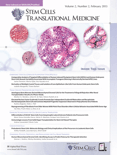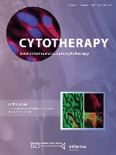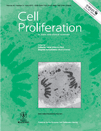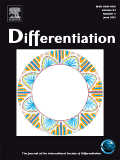
Stem Cells Translational Medicine
Scope & Guideline
Empowering Researchers in the Stem Cell Revolution
Introduction
Aims and Scopes
- Stem Cell Therapy Applications:
The journal emphasizes the clinical applications of various stem cell types, including mesenchymal stem cells (MSCs), induced pluripotent stem cells (iPSCs), and their derivatives for treating a wide array of diseases, particularly in regenerative medicine. - Mechanisms of Stem Cell Function:
Research on the biological mechanisms underlying stem cell differentiation, proliferation, and functionality, including studies on signaling pathways, cellular interactions, and the effects of the microenvironment. - Development of Novel Therapeutics:
Focus on the development and evaluation of new therapeutic strategies utilizing stem cells, including engineered cell products and cell-derived extracellular vesicles, to enhance treatment efficacy. - Regulatory and Ethical Considerations:
Exploration of regulatory frameworks, ethical implications, and standardization in the use of stem cells and their derivatives in clinical settings. - Translational Research Methodologies:
Utilization of innovative research methodologies and technologies, such as 3D bioprinting, bioengineering, and high-throughput screening, to facilitate the translation of stem cell research into clinical practice.
Trending and Emerging
- Extracellular Vesicles and Secretomes:
There is an increasing focus on the therapeutic potential of extracellular vesicles derived from stem cells, particularly in their ability to mediate paracrine effects and provide a cell-free alternative for regenerative therapies. - Personalized Medicine Approaches:
Research is trending towards personalized medicine, where stem cell therapies are tailored to individual patient profiles, leveraging iPSCs derived from patients for disease modeling and customized treatment strategies. - 3D Bioprinting and Tissue Engineering:
Innovative methodologies such as 3D bioprinting are emerging as key areas, enabling the creation of complex tissue constructs that can better mimic natural tissue architecture for regenerative applications. - Immunomodulation and Inflammation Control:
Increasing attention is being paid to the immunomodulatory properties of stem cells, particularly MSCs, in managing inflammation and enhancing tissue repair, highlighting their dual role as both therapeutic agents and modulators of the immune response. - Regenerative Strategies for Specific Diseases:
Focused research on specific diseases, such as neurodegenerative disorders and chronic inflammatory conditions, is trending, showcasing targeted approaches for using stem cells in precision medicine.
Declining or Waning
- Basic Stem Cell Biology Studies:
There has been a noticeable decline in publications strictly focused on fundamental stem cell biology without direct translational implications, as the field shifts towards more applied research. - Non-Cell-Based Therapeutics:
Research focusing on non-cell-based therapeutic interventions, such as small molecules or traditional drug therapies, is becoming less prominent in the context of the journal's focus on cell-based therapies. - Animal Models in Preclinical Studies:
There is a diminishing trend in studies that predominantly rely on animal models for testing stem cell therapies, as researchers increasingly seek alternative models that better mimic human physiology. - Single Therapeutic Approaches:
The trend is moving away from studies advocating single therapeutic approaches, with more research emphasizing combinatorial therapies that integrate multiple modalities for enhanced efficacy.
Similar Journals

CYTOTECHNOLOGY
Innovative Insights: Shaping the Future of Bioengineering and Biotechnology.CYTOTECHNOLOGY, an esteemed journal published by Springer, stands as a vital resource in the fields of Bioengineering, Biomedical Engineering, and Biotechnology. With an impact factor reflective of its solid position within academia, this journal encompasses a broad scope dedicated to the advancement of cytotechnological research and applications from its inception in 1987 through to its latest volumes in 2024. Based in the Netherlands, it is committed to providing researchers, professionals, and students with high-quality, peer-reviewed articles that contribute to the understanding and innovations in cytotechnology. Although currently not open access, CYTOTECHNOLOGY has garnered a commendable reputation, holding Q3 rankings in multiple categories, indicating its relevance and influence within the scientific community. Researchers are encouraged to submit their cutting-edge findings to share insights that can spark further advancements in this dynamic field.

Regenerative Therapy
Advancing regenerative medicine through open access innovation.Regenerative Therapy is a premier open-access journal dedicated to advancing the fields of biomaterials, biomedical engineering, and developmental biology. Published by Elsevier in Japan, this journal has been an influential platform since its inception in 2015, contributing significantly to the global discourse on regenerative medicine. With an impressive Q2 ranking in major categories such as Biomaterials and Biomedical Engineering, it is recognized for its quality of research and innovation. Researchers seeking to disseminate their findings or explore cutting-edge developments will find Regenerative Therapy to be invaluable, reflecting current trends and fostering collaborations across interdisciplinary boundaries. The journal offers open access, ensuring that high-quality research is available to a broad audience and enhances the impact of scholarly work in the regenerative medicine community.

TRENDS IN CELL BIOLOGY
Exploring the Frontiers of Cellular InnovationTRENDS IN CELL BIOLOGY, published by CELL PRESS, is a premier journal in the field of cell biology, recognized for its high-impact contributions since its inception in 1991. As a distinguished member of the Q1 quartile within its category, the journal holds an impressive Scopus ranking of #8 out of 285, placing it in the 97th percentile of the field, which underscores its reputation for excellence. The journal serves as an essential resource for researchers, professionals, and students who are engaged with groundbreaking advancements in biochemistry, genetics, and molecular biology. Although it is not open access, it provides critical insights into the latest trends, reviews, and advancements in cell biology, making it a crucial tool for anyone committed to understanding the complexities of cellular systems. With a focus on innovative and transformative research, TRENDS IN CELL BIOLOGY continues to shape the discourse in cell biology and enhance the scientific community's knowledge.

Current Stem Cell Research & Therapy
Advancing the Frontiers of Stem Cell ScienceCurrent Stem Cell Research & Therapy, published by Bentham Science Publishers Ltd, is a leading journal dedicated to advancing the field of stem cell research. With an ISSN of 1574-888X and an E-ISSN of 2212-3946, this journal has been a valuable resource since its inception in 2006 and continues to broaden its scope through 2024. Recognized in the Q2 quartile for Medicine (miscellaneous) and ranked in the 66th percentile among its peers, the journal plays a crucial role in disseminating high-quality, peer-reviewed research that explores both the therapeutic and biological implications of stem cells. Located in the United Arab Emirates, Current Stem Cell Research & Therapy embraces a global audience of researchers, professionals, and students, providing a vibrant platform for discourse and innovation. While the journal offers subscription-based access, it remains committed to enhancing the scientific community's understanding of stem cell therapy and its applications across various medical fields.

CYTOTHERAPY
Elevating Research in Cell Therapy and Transplantation.CYTOTHERAPY is a distinguished journal published by Elsevier Science Ltd, focusing on the critical fields of cell therapy, transplantation, and regenerative medicine. Since its inception in 1999, the journal has established itself as a vital resource for researchers and practitioners, contributing significantly to advancements in Cancer Research, Cell Biology, Genetics, Immunology, and Oncology. With an impressive range of Q2 rankings across multiple categories and a remarkable Q1 standing in Transplantation for 2023, CYTOTHERAPY delivers high-impact research that addresses the evolving challenges in these fields. While the journal does not offer open access, it remains a reputable avenue for disseminating pivotal studies and reviews that push the boundaries of cell-based therapies. Researchers, clinicians, and students alike will find CYTOTHERAPY an indispensable platform to stay abreast of the latest discoveries and innovations that are shaping the future of medical science.

American Journal of Stem Cells
Pioneering discoveries in stem cell science for a healthier tomorrow.American Journal of Stem Cells is a leading multidisciplinary publication dedicated to advancing the field of regenerative medicine and stem cell research. Published by E-CENTURY PUBLISHING CORP, this journal has gained recognition for its commitment to high-quality scientific contributions, achieving impressive rankings within the Scopus database, particularly in the areas of Biochemistry, Genetics and Molecular Biology, and Developmental Biology. With its focus on innovative research, the journal offers crucial insights and developments that appeal to researchers, professionals, and students alike. Although it is not an open-access journal, the American Journal of Stem Cells plays a pivotal role in disseminating impactful findings that define the future of cellular therapies and regenerative methodologies. The journal's past coverage from 2012 to 2017 reflects its dedication to advancing knowledge in key scientific disciplines, making it an essential resource for anyone engaged in the dynamic landscape of stem cell science.

Russian Journal of Developmental Biology
Charting the course of developmental discovery.The Russian Journal of Developmental Biology, published by PLEIADES PUBLISHING INC, serves as a significant platform for researchers and professionals engaged in the field of developmental biology. With the ISSN 1062-3604 and E-ISSN 1608-3326, this journal focused on intricate biological processes and dynamic developmental mechanisms from 2005 until 2017. Although its coverage is currently discontinued in Scopus, it remains notable for its contribution to understanding the pivotal roles of biochemistry and molecular genetics within the context of development. As a publication situated in the competitive quartiles of the field and boasting an influential Scopus rank of #77 out of #78, it has made a unique mark in developmental studies. Researchers and academics seeking to enhance their knowledge of historical advancements in the discipline will find the journal a valuable resource, even as it navigates the transition away from active publication.

BIOCELL
Pioneering Discoveries in Molecular BiologyBIOCELL is a distinguished peer-reviewed journal dedicated to the field of Cell Biology, published by TECH SCIENCE PRESS. Since its inception in 1995, the journal has been at the forefront of disseminating innovative research, with converged publication years extending from 1995 to 2013 and from 2015 to 2024. Although it currently holds a Q4 ranking in the Cell Biology category according to the 2023 category quartiles, BIOCELL aims to foster advancements by providing a platform for researchers, professionals, and students to share their findings in biochemistry, genetics, and molecular biology. The journal is available in both print (ISSN: 0327-9545) and digital formats (E-ISSN: 1667-5746) and seeks to attract contributions that enhance scholarly dialogue and understandings of cellular mechanisms and innovations. With a commitment to quality research and critical discourse, BIOCELL plays an important role in nurturing the scientific community within Argentina and beyond, offering vital insights that contribute to the advancement of the life sciences.

CELL PROLIFERATION
Bridging Knowledge Gaps in Cell Proliferation StudiesCELL PROLIFERATION, published by Wiley, is a leading open-access journal that has been at the forefront of research since its inception in 1968. With an impact factor that solidifies its position in the Q1 category of both Cell Biology and Medicine (Miscellaneous), this journal serves as a premier platform for disseminating groundbreaking studies in the field of cellular and molecular biology. The journal is renowned for its rigorous peer-review process and comprehensive coverage of topics related to cell growth, division, and differentiation, making it an invaluable resource for researchers, professionals, and students alike. With its notable Scopus ranking of #30 in Biochemistry, Genetics, and Molecular Biology: Cell Biology, and a robust open access model since 2019, CELL PROLIFERATION ensures that cutting-edge research is accessible to a global audience, fostering collaboration and innovation across the scientific community. Located in the United Kingdom, the journal remains committed to enhancing the understanding of cellular processes, thereby influencing developments in medicine and biotechnology.

DIFFERENTIATION
Shaping the Future of Developmental ResearchDIFFERENTIATION is a respected peer-reviewed journal published by Elsevier Science Ltd, dedicated to advancing knowledge in the fields of Cancer Research, Cell Biology, Developmental Biology, and Molecular Biology. With an established history since 1973, the journal continuously explores the intricacies of cellular and molecular processes that govern differentiation in biological systems, thus playing a pivotal role in shaping contemporary research directions. Currently indexed in the Q3 quartile across multiple relevant categories, it provides a crucial platform for researchers to disseminate their findings and engage with the scientific community. DIFFERENTIATION does not offer open access, but it remains a valuable resource for academics seeking to enhance their understanding of the fundamental mechanisms that underpin life sciences. By fostering a rigorous dialogue among scientists, it contributes significantly to the ever-evolving landscape of biochemistry and genetics.